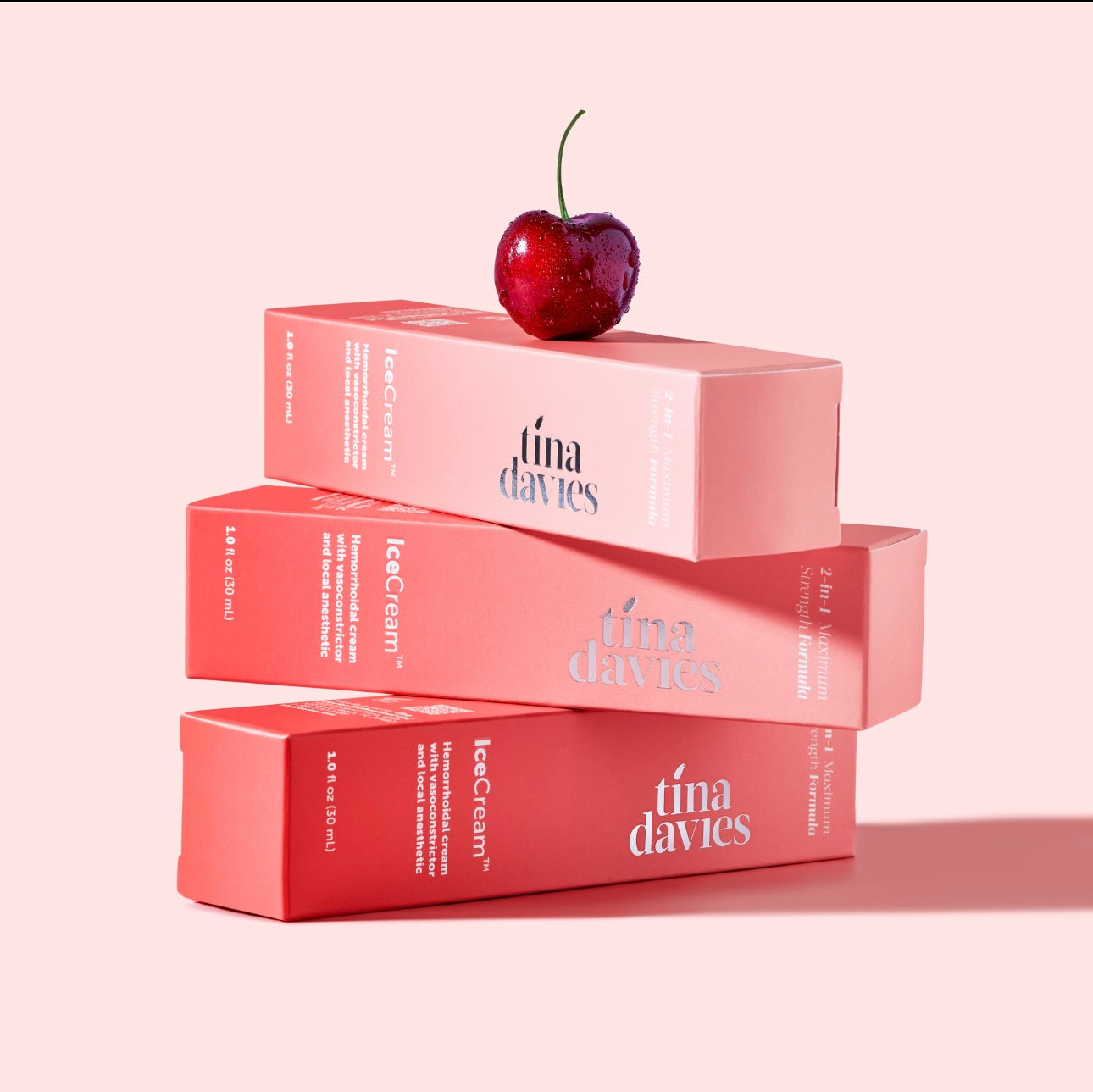What should Permanent Makeup Artists (PMU), also know as Cosmetic Tattoo Artists, expect and how much should they pay for their training?

Lets talk about why it makes sense to pay for the education you need to get started in this industry:
Investing in the education necessary for Permanent Makeup tattooing makes sense as it provides crucial skills, knowledge, and certification essentials for a successful career.
Formal training ensures mastery of techniques to create stunning eyebrows, eyeliner and lip procedures. It includes other topics such as: color theory, pigmentology, understanding tattoo tools, wound care, and more. It fosters expertise in creating natural and aesthetically pleasing results.
Professional education also covers safety protocols, hygiene standards, and client communication, instilling confidence in both practitioners and their clients.
A reputable training program not only imparts technical skills but also equips individuals with business acumen, marketing strategies, and legal considerations, facilitating the establishment of a thriving practice.
Moreover, certified training enhances credibility, attracting a broader client base and setting practitioners apart in a competitive industry.
Ultimately, the upfront investment in education pays off by laying a solid foundation for a rewarding and sustainable career in permanent makeup tattooing.
Working as a permanent makeup artist is a dynamic journey of artistic expression and transformative impact. Each day brings the exhilarating opportunity to enhance clients' features, instilling newfound confidence and changing lives. The creative process involves skillful precision, as I artfully apply permanent makeup to eyebrows, lips, and eyeliner.
The role offers unparalleled control over my schedule and finances, affording a work-life balance that fosters personal growth. As a self-employed artist, I dictate my hours and earnings, providing both autonomy and financial stability. Building lasting relationships with clients is a gratifying aspect, as the process of enhancing their self-image fosters a sense of pride and empowerment. Witnessing the positive transformation in clients cultivates a fulfilling career, where the artistry of permanent makeup intertwines with the joy of making a meaningful impact on individuals' lives.

First, lets take a look at what some of our competitive industries are paying for their education and what they are earning.
A full cosmetology program is the most comprehensive and require the most hours.
The national average is between 1,400 to 1,600 hours.
The national average for Nail Technology is 300 hours
Electrologist is 500 hours
Esthetics is 650 hours.
Check with your state licensing board for the required number of hours.
Cosmetology:

|
|
Program Length |
Tuition & Fees |
|
Barbering/Barber |
10months |
$11,850 |
|
Cosmetology/Cosmetologist, General |
12months |
$16,275 |
Here is a site showing costs from 5K to 25K:
https://www.beautyschoolsdirectory.com/programs/cosmetology-school/cost-of-cosmetology-school
College requirements to enter Cosmetology School: The primary requirements focus on age and education. You'll have to be at least 16 years old, 18 in some places. Some states require a high school diploma or a GED, but others do not. In some cases, however, you might have to take supplementary courses or exams if you're not a high school graduate.
15 states require continuing education for cosmetology.
The average salary for a cosmetologist is $22.78 per hour in the United States. $45, 560.00 per year. Updated at March 12, 2023.
Esthetician:

- Basic esthetician training takes roughly six months to complete. Expect to pay approximately $4,000 to $6,000 in tuition and fees at a community college and $6,000 to $12,000 at a private school. In-state students should be charged less than out-of-state students at community colleges.
- Master esthetician training typically costs twice as much as basic esthetician training (as it requires double the coursework). Private schools can charge up to $20,000 for master esthetician training.
- Budget an additional $750 to $2,000 for books and other supplies.
Thirty states and Guam require 600 hours of training for a standard esthetician license.
The remaining states (except for Florida, which doesn't require esthetician licensing and Connecticut, which requires a esthetician license) require up to 500 hours of esthetician training (OR, SC, WI, AK, MI, MA, PA) or up to 1,500 hours of licensing (AL, UT, VA, GA, KS, NV, IL, LA, MO, TN, TX, IN, MO).
https://www.costowl.com/education/beauty/beauty-esthetician-school-costs/
Estheticians wages: $32,810 ($15.77/hr) New Hampshire - $54,770 ($26.33/hr) Washington
https://www.inkedmind.com/state-requirements-to-obtain-a-tattoo-license/
Tattoo Artist:

The average salary for a tattoo artist is $59,551 per year in the United States.
539 salaries reported, updated at March 11, 2023 Highest reported was Boston at $102,971.00.
Zip Recruiter reported this: As of Mar 8, 2023, the average annual pay for a Permanent Makeup Artist in the United States is $57,086 a year. This is $27.45 per hour.
https://www.ziprecruiter.com/Salaries/Permanent-Makeup-Artist-Salary
While ZipRecruiter is seeing annual salaries as high as $121,000 and as low as $16,500, the majority of Permanent Makeup Artist salaries currently range between $31,500 (25th percentile) to $65,000 (75th percentile) with top earners (90th percentile) making $90,000 annually across the United States. The average pay range for a Permanent Makeup Artist varies greatly (by as much as $33,500), which suggests there may be many opportunities for advancement and increased pay based on skill level, location and years of experience.
Here’s an example of the above industries and their requirements for California as of 2023:
- COMPARING COMPETITIVE INDUSTRIES:
- Basic requirement CALIFORNIA as of 2023: We all should compare and view the PMU/Cosmetic tattoo profession to other competitive industries and level up.
- Cosmetology/Barbering 1000 hrs (was reduce from 1600/1400 to 1000), Esthetician/Electrologist 600 hrs, and manicurist 400 hrs. These hours covers the basics.
- Tattoo Artist/PMU Cosmetic Artist: 18+ years of age, Blood-Borne Pathogen (BBP) training certificate (annually), application + proof or waiver of Hep B vaccination to Environmental Health department.
- Cosmetology/Barbering are allowed to introduce products to hair
- Esthetician/Electrologist are allowed to introduce products to skin
- Manicurist are allowed to introduce products to nails
- It's fascinating to see the requirement that is needed to become a licensed Hair, Nails, and Skin tech mean while very little regulation to none for Cosmetic Tattoo Artist. Especially when a blade/needle is breaking the skin and causing a wound to leave pigments.
Unfortunately, I can tell you from my own experience in this industry over the last 10 years that it’s a revolving door for PMU artists.
Artists come and go and few become extremely successful. I have seen this both in my training academy and my tattoo supply company, MicroPMU Tattoo Supply. If an artist discontinued ordering and I would call to see if I could help in any way, 7 out of 10 times the artist had given up tattooing.
Why is our industry like this? What makes it so volatile and difficult to survive in?
It’s simple….the lack of education that artists receive along with varied regulations per state or no regulations at all.
- ADDITIONAL REASONS WHY PMU ARTISTS GIVE UP:
- Thinking they'll make 6-figure from a 1-3 days training.
- Getting into this industry thinking its fast money.
- Getting into this industry not knowing it requires much more then 1-3 days training.
- Primarily the false knowledge of this industry that leads them become frustrated and give up.
PMU needs to elevate the industry. Artists need more education, provide more comprehensive materials to our clients.
- PROBLEMS IN THIS PMU INDUSTRY:
- This industry has become known as a "LUCRATIVE' business type. Yes, real profit can be made and that has also cause many artist finding ways to capitalize on quick and fast training, often leaving new artist feeling incompetent to proceed and sometime causing botch work due to the lack of support and mentorship.
You see ads like this all the time: False and Misleading ads.

You may also see ads like:
"MAKE 100,000.00 YOUR FIRST YEAR AS A PMU ARTIST"
Unfortunately, this is not a reality in our industry.
Here’s an example: I (Mary Hall Scott) started out in the medical field as a Radiologic Technologist (X-Ray) Technician. During the schooling I decided to attend another year and also add Radiation Therapy to my certifications. My total time in School was 3 full years (summers included) to be certified in Radiology and Radiation Therapy.
Post my graduation of receiving these certificates Radiation Therapists decided to raise the bar and improve the quality of therapists. The pay scale for Radiation Therapists was below that of a RN (nurse). So the laws were changed and you could no longer do the 1 year program post completing Radiology. Radiation Therapy became a 4 year degree.
This change had a dramatic effect on the industry. Radiation Therapists now demanded better wages, those more in line with nursing hourly rates. The degrees were now the same, both 4 years. The action raised the bar for Radiation Therapists and improved the working conditions, the amount of respect received in the industry and the wages.
PMU should follow this same trend and artists should be more educated and raise the bar.
So what kind of an instructor should I look for?
Here are some things to consider:
- What training you are looking for- beginning or advanced?
- Are you looking to learn one procedure or several?
- Do you want to receive education from someone you can go back to and build on your previous education?
- How competent do you want your trainer to be?
- Are you looking for a short quick course or a career?
- What income potential are you looking to be able to achieve?
- Do you have any previous training?
- Have you done continuing education or kept up with the changes in the industry?
- Should your education include all the latest changes and trends?
- Will you have to relearn some procedures and directives based on industry’s recent innovations or modifications?
- WHAT PMU INDUSTRY NEEDS:
- Pre-screening is PMU Career right for you?
- Pre-screening has it's pros/cons but ultimately allow artist to understand what it is they'll need to know and what it takes to enter this career path.
- Educational stepping stone: Orientation > Pre-screening > Beginners > Immediate > Advance > Additional Master Course... additional practicum course to help trouble-shoot
- Fundamental of every aspects of PMU should be the highlight of all training course before learning the techniques.
- Is online or in person training right for you?
- A program that allows new artist to have a comprehensive knowledge and a starting ground guidance. Allowing them to have a spark of knowledge that can be more in-depth learning if desire.
If you have answered yes to a number of these questions then you need to look for a well-qualified instructor/mentor.
An instructor like this has years of experience in the industry.
Instructors:

A well qualified instructor does all of the following:
- Always keeps up with the changes that are happening in every aspect of our industry including pigments, cartridges, machines, techniques, products used, state and local regulations, training styles, kits, model selection, travel costs, students educational opportunities (hands on training, online trainings, testing) and more.
- They spend hundreds of hours preparing for students.
- They spend time studying, continuously perfecting their own work.
- Continuing education is a priority to them and they continue to learn, attend trainings and conferences.
- Spends countless hours on post-education (follow up with students after leaving the program).
So what should high quality training cost?
An instructor of high caliber and integrity will create an income for themselves in the top tier of artists. These instructors will be earning a six figure wage or close to it. They will have put in their time and pushed their way thru all the challenges that face each and every artists. They have risen to the top due to hard work and determination.
An average day of work of these artists can be taking on 3 or 4 new clients and earning $2-3K a day. This really equates to approximately $1-$1.5 a day if they include their touchup work in the initial cost. A day like this may happen 1-3 days a week, other days maybe slower or touchups from clients of previous years. It is relatively easy for an artist at this level to do 12-16 new clients a month.
If an artists at this level decides to train, they are really deciding to give back to the community out of a love for the industry. This artist can easily earn more money by tattooing than teaching. Even if you are teaching large groups, which is more profitable, you still have to consider the pre and post time invested in the curriculum and with each student.
Online Training:

An artist should expect to pay $1-3K per month for online zoom trainings and support.
The online course should be 2-6 months long depending on the frequency of the zoom, the amount of homework, the involvement of the instructors and students. You should also receive enrollment in a type of social media platform that allows for easy communication between the artist and the instructor. The student should have unlimited and forever access the the materials presented.
An artist should expect to pay $2500-$3000.00 a day for quality training, including 2 models a day.
I know this sounds like a lot of money but it’s not. As a student, you are providing that instructor with a normal days salary. Remember, they are putting in many additional hours pre and post the 8 hours they spend with you that day. Students must also remember that instructors are also taking on a huge liability when they decide to teach. Insurance costs go up and the instructor is now responsible for you, your work and the outcomes of the day you worked in their studio.
An artist should expect to spend approximately $15K to have a competent start to their PMU career between education and supplies.
This figure is on the low end and could cover the training for eyebrows, eyeliner and lips if the training is done thru the right company and/or trainer. This maybe dependent on going to a company/trainer that has the option of allowing you to continue to train in a procession of hierarchy. A program that allows you to start with the fundamentals, learn the basics and then continue on from that point to educate yourself on advanced procedures such as advanced eyebrows, eyeliner and lips. Also, advanced areas of our industry such as Scalp micropigmentation, Areola’s, Paramedical training, Tiny Tattoos and more.
An artist should expel to double this amount when learning advanced procedures and adding modalities.
The more advanced your skill set becomes the. more you will spend in education. An advanced artist will expect to have another $15K into their training. It may looks something like this: another $2K a day for advanced eyebrow, eyeliner or lip class, an additional $5K for a single advanced modality for SMP, Areola etc. The 3 advanced facial procedures along with 2 additional modalities will be approximately $16K.
PMU offers artists an incredible opportunity to have a successful, professional career in a self-employed field. It’s a phenomenal industry that has the potential for 20% growth increases year after year. It has to offer this kind of growth for artists to continue to be successful. Once an artist completes the eyebrow procedure on a client. That client may return in a year or maybe 3 for a touchup. We should not consider this industry a repetitive industry, not like hair or nails. This industry may not become repetitive until an artist has built clientele for a 3-5 year period. Every artist will lose clients to normal saturation like clients moving, no longer feeling the need to upkeep the brows (services), they found another artist they liked their work better (competition) and many other reasons.
The higher the education level the artist achieves the higher price tag and artist can put on their services. This is similar to a cosmetologist who achieves certain levels of succession and increase their pricing structure accordingly.
So in theory, if an artist would like to follow a self employed business model that earns an income similar to a cosmetologist or esthetics, then the artist should expect to spend similar amounts of dollars for education.
We have proven statistics showing that the PMU/Tattoo industry is showing incentives and growth that are allowing artist to make a viable living.
So what should the future look like in the training realm?
Comparing trainings is like comparing apples to oranges. There are so many variables.
Things to “watch out” for when looking for trainings:
- Overpromising and underdelivering (companies saying they can effectively teach 10 topics in 2 days..not possible).
It is my belief that the future of the industry will look like this…the PMU Collaborative.
- Lack of education on the instructors part. We all start somewhere, the instructor should be transparent about number of years in the field, their personal education, number of procedures they have done etc.
- Classes that only teach one way. Use one machine (usually a private labelled machine), one cartridge and one technique. We are all independent artists and will not tattoo the same. Alternative choice should be made available if something is not working for you, the student.
- Classes that are being offered without pre-post support.
- Classes that require students to find their own models. (Students usually don’t have the education to assure the client is the correct client for that training. Factors like age, skin type, Fitzpatrick, techniques etc have to considered and model decisions should be made by the trainer.
- Pricing structure: what you are actually learning and how long are you entitled to the materials. If you have paid for materials you should be able to keep them.
- Is the training taught in a way that it can be built upon, followed up with more advanced training.
It is my belief that the future of the industry will look like this…the PMU Collaborative.

The PMU Collab currently offers a 3 month online, which is very convenient to do if you are working in another industry and want to add to that industry or replace the industry.
It starts with business acumen training as many artists are great artists but don’t know how to run a business.
The training then covers:
- Business Acumen
- Marketing Analysis
- Setting up your business
- Your studio vs Commission based
- Business expenses
- Color Theory
- Fitzpatrick Scale
- Pigmentology
- Machines & Cartridges
- Tattooing Techniques
- Dimensional Tattooing
- Realism Tattooing
- Discounts to hands on training
- Affiliate programs available
- and so much more!
Educational programs should be created in a scientific way that makes sense. A program that creates a pathway of understanding and knowledge and can be built upon for future career expansions.
The PMU Collab”s numbers look like this: 3 months = 7 classes approximately 2.5 hours in length. Homework is mandatory and requires approximately 3.0 hours per week.
Total hours of education and work equals 35.5 hours of education for $3000.00. Hands on follows for $3000.00 for 3 days with 3 models.
That is far below the cost of cosmetology and the income potential is just as big if not larger. The number of hours are below the number of hours spent in cosmetology and esthetics. This means that they will be continuing education needed after this training is completed.
PMU Collaborative allows for that education and is respondent to when the artists are ready to grow. Artists grow at a variety of rates so the educational system needs to be flexible. The Collab offers additional training by in house trainers and external trainers who are dominant and leaders in the industry. It also offers a lifetime membership with integration into a facebook page for continuing support to all artists. The icing on the cake is that if any additional education that is offered or created, once you’re a member of the community, you’re entitled to that information at no cost.
The PMU Collaborative has set a precedence in the industry, it is changing the industry and meeting the needs of the artists who want to achieve higher education . We will see other educators/educational companies follow and create programs that offer more training hours, better education and graduate or certify outstanding artists that will enter the field and raise the bar of our industry.
I hope this article makes sense and helps to give everyone a sneak peek into the future of our industry. This is the direction I believe we are headed in 100%. We will be stronger and continue to thrive. Our client outcomes will be better which will lead to more business. The PMU world will collaborate and become a desired field of interest for the most talented grouping of people.
Please feel free to reach out to Mary Hall Scott or Diana Tri with any questions.






